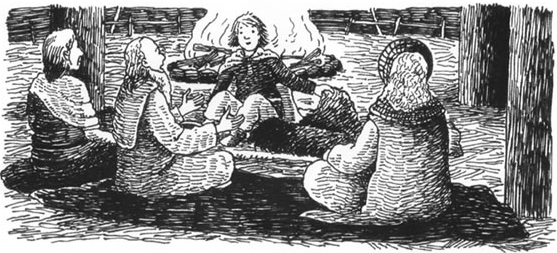The Cianachta or Clan Cian! ("Race of Cian") At least that is what has been found in recent family history digging. This genealogical research started back in January after my grandmothers 80th birthday, which went very well fortunately. My mother being the prime historical investigator, uncovered a few fun things. Actually more than any of us thought possible. Much of it appears to be accurate, but for myself I like to just imagine a bunch of blue faced celts living and surviving in a time that I'm glad I didn't live in, except in my overly fantasized imagination.
Alright, time to start the weekend! Oh and the genealogy breakthrough name? It was Carroll. Finding the relatives coming to America in the late 1800's was the hard part - another century I'm glad I didn't live through. Weekend!
Today is a day of shamrocks and Guinness, leprechauns and rejoicing for Irish communities everywhere. It is the day of St Patrick, Ireland's patron saint. So let's take a little trip through the mists of Irish myth and legend.
Who was St Patrick? There are a few 'facts' which are accepted as true by historians, since they come from two letters Patrick almost certainly wrote himself. He was captured as a teenager and sent as a slave to Ireland, where he lived as a shepherd for six years before escaping and returning to his family. He was related to St Martin of Tours on his mother's side, and his parents were high-ranking Romans from either Gaul or Britain. Patrick returned to Ireland later in his life as an ordained bishop, and was given permission by the Ard-Righ (High King) to preach Christianity in the north and west of the island. Scholars think (but don't know absolutely) that he lived and worked sometime in the second half of the 5th century.

So what has a Christian bishop to do with myth? Of course, the most famous 'myth' about Patrick himself was that he banished the snakes from Ireland (possibly a reference to the serpent symbolism of his druid 'rivals', because there were no snakes in Ireland). I'm pretty sure he would have spoken the Celtic language of his captors (and later on, his flock). He must also have heard all the great stories of the druidic Irish religion told around the fire when he was a young man in captivity--and probably in the Ard-Righ's great hall too. Bards were honoured folk then, and those were the stories they told--Cuchulain, Finn MacCool, Maeve and the
Tain Bo Cuailnge and so on. I would speculate that those mythical tales--and more importantly, the way in which they were told or sung, had an effect on Patrick the priest.

Look at his famous prayer
'St Patrick's Breastplate' forinstance. It has the lines:
'I bind to myself today
the power of Heaven,
the light of the sun,
the brightness








What a lovely post! I'd far rather celebrate Saint Patrick with a myth and legend or two than a pint of Guinness.
Great post Lucy. Unfortunately St Patrick's Day still resonates with Sports Day at my Irish Convent School... my worst day in the school calender, when I was forced to run races and compete! Later I took up running and found I was quite a fast 10 kilometre runner. But St Patrick's Day still brings back memories of angst at my unco-ordinated attempts, of letting the team down and of sweaty, hairy girls and smelly games rooms not far behind the angst!
Fantastic post, Lucy - I've always had a soft spot for St Patrick's Breastplate (so to speak), and I love this Song of Amergin - I've never seen it before. There are definitely similarities of tone - it's beautiful.
This is a wonderfully rich blog post.
I love the story and the myths of St Patrick.
He did not allow birth or circumstances to define him.
I saw St Patrick's Breast Plate as a call to arm oneself with the wonders of the world - to fortify oneself - to become better able to sing the praises of God: a blend of nature and biblical references.
What an interesting, rich and informative post, Lucy! I love all the pictures and especially the prayer and the song - beautiful! Yesterday I was looking for something in the folder of research I did for Warrior King, my book about Alfred. I came across an article about a piece of research which showed that England as well as Ireland, Wales and Scotland, is predominantly 'celtish' by origin - the Anglo Saxon and later invaders contributed to the gene pool but didn't swamp it. I thought that was interesting - and good to know that we may all have inherited some of that celtic propensity for song and story!
Thanks everyone--so glad you all enjoyed it.
Beautiful Lucy, wish the drunks on the tube last night would take the time to read what this day is really all about!